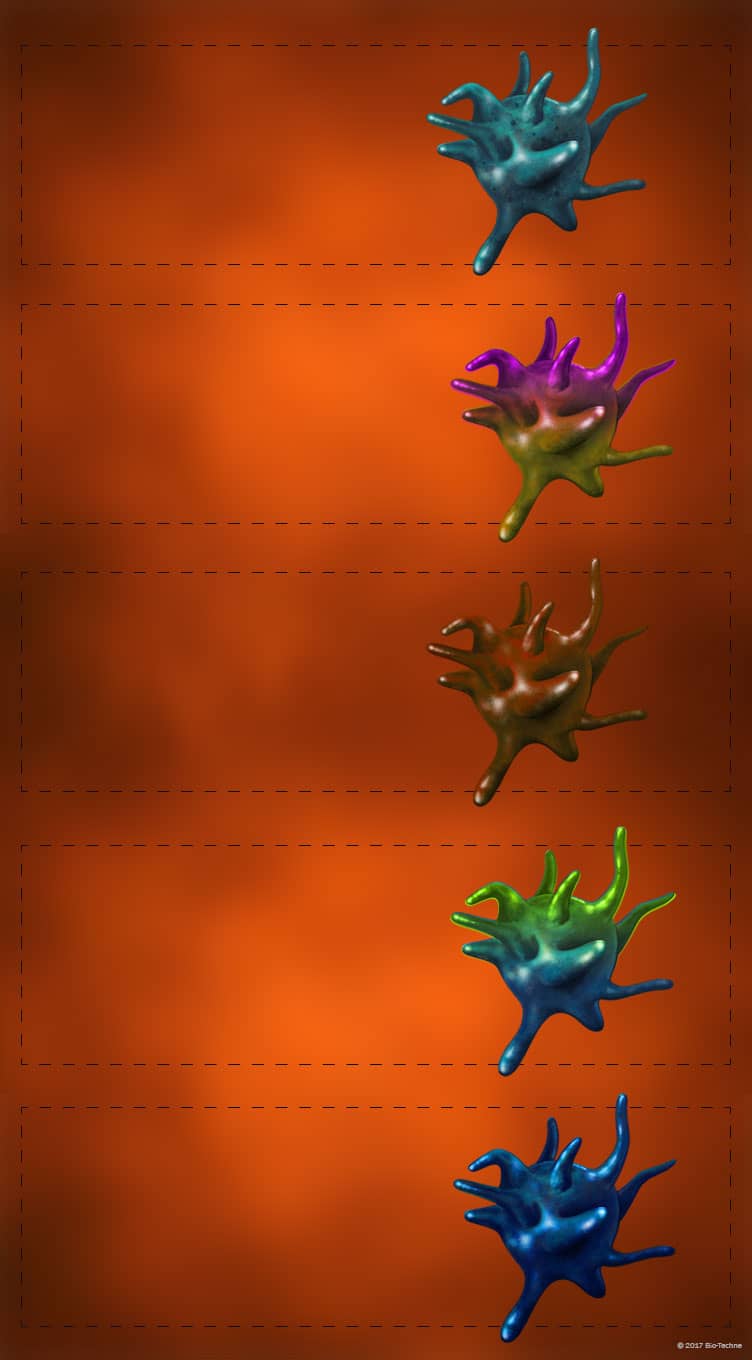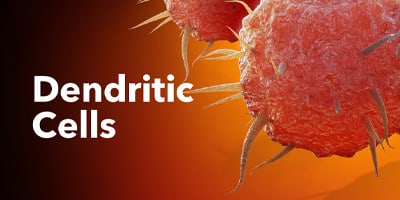Mouse Tissue-specific Dendritic Cell Subset Markers
Click on one of the dendritic cell types shown in the buttons below to see the markers that are commonly used to identify the different dendritic cell subsets.

Overview
Mouse Skin Dendritic Cell Subsets Overview
Five phenotypically distinct CD11c+MHC class II+ subsets of dendritic cells have been characterized in healthy mouse skin. These include epidermal Langerhans cells, and four subsets of dermal dendritic cells: a CD11b+Langerin/CD207- subset, a CD11b-Langerin/CD207-subset, and a CD11b-Langerin/CD207+ population, which can be subdivided into a CD103/Integrin alpha E+ subset and a CD103/Integrin alpha E- subset. The most abundant of these is the CD11b+Langerin/CD207- dendritic cell subset, which is commonly identified based on the expression of CD11b and SIRP alpha/CD172a, coupled with the lack of expression of Langerin/CD207 and EpCAM/TROP1. In contrast to this dermal dendritic cell subset, epidermal Langerhans cells, which also express CD11b/Integrin alpha M, can be identified by the positive expression of Langerin/CD207, EpCAM/TROP1, and SIRP alpha/CD172. Similarly, the two subsets of mouse CD207/Langerin+CD11b- dermal dendritic cells can be distinguished from Langerhans cells based on the lack of expression of CD11b, EpCAM/TROP1, and SIRP alpha/CD172a, and the presence of XCR1 on both of these subsets. Expression or lack of expression of CD103/Integrin alpha E is used to distinguish the two CD207/Langerin+CD11b- dendritic cell subsets. The one additional mouse dermal dendritic cell subset that has been identified is commonly characterized as Langerin/CD207-CD11b-. This subset of dendritic cells lacks expression of Langerin/CD207 and EpCAM/TROP1, and uniquely express CX3CR1, along with low levels of CD11b/Integrin alpha M and SIRP alpha/CD172a. Functionally, the different dendritic cell subsets present in the skin are thought to be specialized to respond to different pathogens and differentially shape the immune response based on the properties of the invading pathogen.


